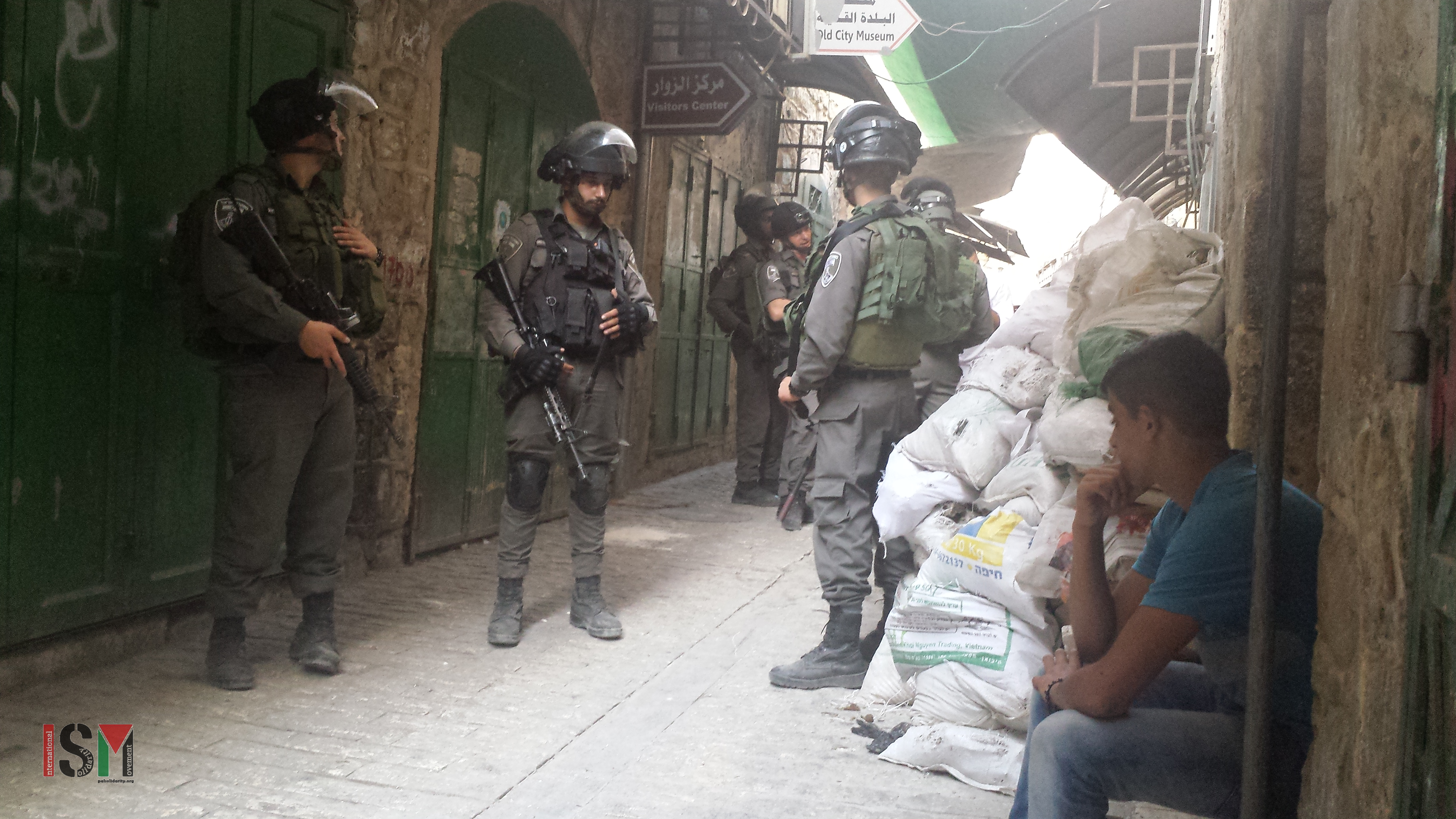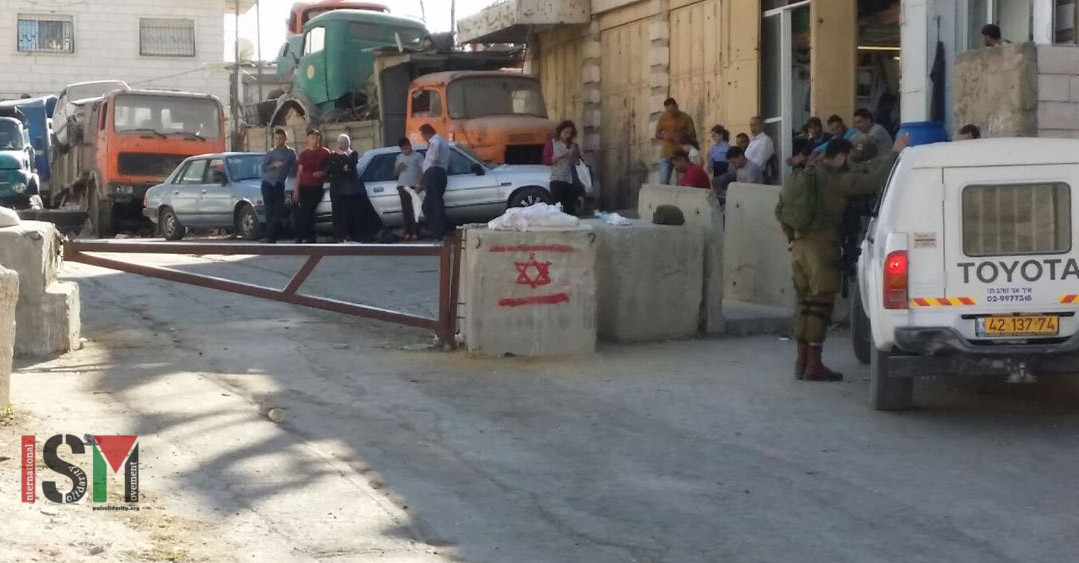Tag: Ethnic Cleansing
-
Nowhere to hide: New illegal observation tower in occupied Hebron
3rd October 2016 | International Solidarity Movement, al-Khalil team | Hebron, occupied Palestine Israeli forces put up a CCTV observation tower in the Ibrahimi mosque area, further increasing not only their all-encompassing surveillance of Palestinians, but also their slow but steady illegal annexation of more and more Palestinian land in occupied al-Khalil (Hebron). At the…
-
No matter who wins the US Presidential election, Palestine has already lost
3rd October 2016 | International Solidarity Movement, al-Khalil team | Hebron, occupied Palestine One week ago, the United States and much of the world turned on their televisions to tune into the 2016 Presidential debate. Advertised as the most anticipated debate in a generation, millions watched as Democrat Hillary Clinton sparred off against Republican Donald…
-
The slow creep of ethnic cleansing – closed military zone in Hebron
30th September 2016 | International Solidarity Movement, al-Khalil team | Hebron, occupied Palestine Israeli forces in occupied al-Khalil (Hebron) have further expanded the closed military zone (CMZ), now covering the whole Tel Rumeida neighborhood, while setting up new and enforcing existing checkpoints with increased restrictions. Parts of the Tel Rumeida neighborhood and the tiny strip of Shuhada…



